Written by: San, Deep Tide TechFlow
In recent days, a wave of spoken English practice has swept through the crypto community.
A project called Poseidon, focused on AI voice input, has officially launched. At this stage, users can earn points daily by submitting voice inputs, which will count towards future airdrop allocations.
As a star project incubated by Story Protocol and led by a16z, Poseidon targets the current scarcity of high-quality, clear AI voice data, aiming to help train AI to understand speech in different languages, dialects, and environments.
After experiencing it myself, I have summarized the background and participation methods of the Poseidon project. There may be a hidden opportunity here for the next "zero-cost big reward."
Project Background
According to its official website, the project's Chief Scientist, Sandeep Chinchali, holds a PhD from Stanford and is currently an Assistant Professor at the University of Texas at Austin, specializing in edge computing, artificial intelligence, and generative AI.
Poseidon's Product Manager, Sarick Shah, previously served as a software engineer at LotusFlare and Roadz, has a background from Johns Hopkins University, and was responsible for Story's AI engineering before joining the Poseidon team.
Poseidon's Head of Operations, LJW, was formerly the co-lead of the Harvard University Crypto Lab and a Senior Researcher at Harvard Business School, with extensive experience in AI and Web3 business model operations.
Poseidon's Project Lead, SY Lee, is also the founder and CEO of Story Protocol. His first startup, Radish, was a mobile serialized novel app with millions of downloads, which he sold to Korean tech giant Kakao for $440 million in 2021. He then served as Global Strategy Officer at Kakao Entertainment and is also a venture partner at Hashed, Korea's largest blockchain fund.

Poseidon has attracted significant attention thanks in part to the incubation support from Story Protocol. As an ecosystem focused on on-chain IP, Story Protocol provides substantial assistance for Poseidon's future development. Their connection goes beyond just incubation; SY Lee, also a founder of Story Protocol, personally serves as Poseidon's project lead, highlighting its importance within the Story ecosystem.
Poseidon's recently announced funding information has also brought market attention and confidence to the project. On July 23, the Poseidon team announced that its seed round was led by the well-known crypto investment firm a16z, with an amount of $15 million.

Why did a16z choose to invest in a voice data collection project like this?
The answer lies in one of the core challenges currently facing the AI industry—available data. a16z partner Chris Dixon pointed out in Poseidon's research report that the AI industry is facing a bottleneck of "data exhaustion," which is precisely the core issue Poseidon aims to solve.
Specifically, current AI training faces three major data dilemmas:
Slowing data growth: The current rate of internet content production is far lower than the rate at which AI can learn and digest data. The dilemma of AI having no data to learn from may occur in the near future. In 2024, former OpenAI scientist Sutskever pointed out that the growth rate of internet content data is slowing, and this "fossil fuel" that propelled AI leaps is gradually being depleted.
Scarcity of high-quality data: Compared to text data, clear multilingual voice data is an even more "scarce resource." Higher quality voice content data can enable AI to understand what we express in voice conversations more quickly, thereby improving efficiency.
Lack of diversity: Most of the existing internet voice data is in "standard Mandarin." Language data in different dialects, accents, and environments is severely lacking in this field.
Poseidon's solution directly addresses this data demand pain point by incentivizing users to contribute multilingual voice data from real-world scenarios, providing AI models with richer and higher quality training material.
This "everyone contributes data, everyone gets rewarded" model not only solves AI companies' data needs but also creates an opportunity for ordinary users to share in the dividends of AI development.
Participation Tutorial
Currently, in addition to the web version, Poseidon has also launched a mini-App in the World Coin App's marketplace. Users can add the app and log in via the World Coin App, but this method is more complicated than the official website process. This article will use the web interaction process as an example.
Poseidon official website link
After entering the official website, register with your email. Currently, there is no need to bind a crypto wallet, which is very user-friendly for newcomers. On your first login, you need to grant microphone access and complete a few English word reading recognitions.
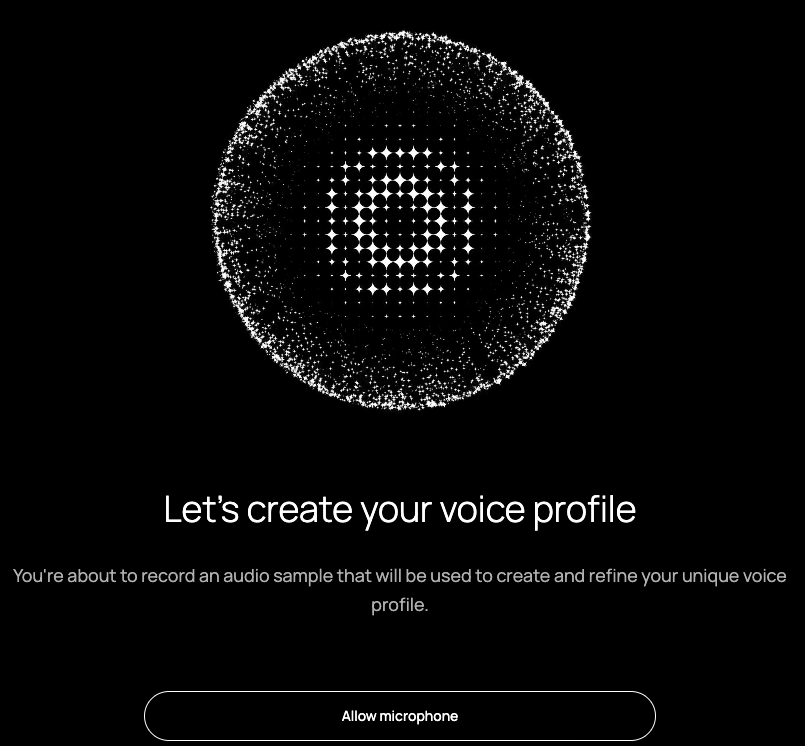
Once completed, you can enter the main interface. In the "Home" section of the left navigation bar, you can select the language you want to input. Currently, Poseidon supports 16 languages, including English, Chinese, German, Japanese, etc. The English participation group already has more than 24,000 users.
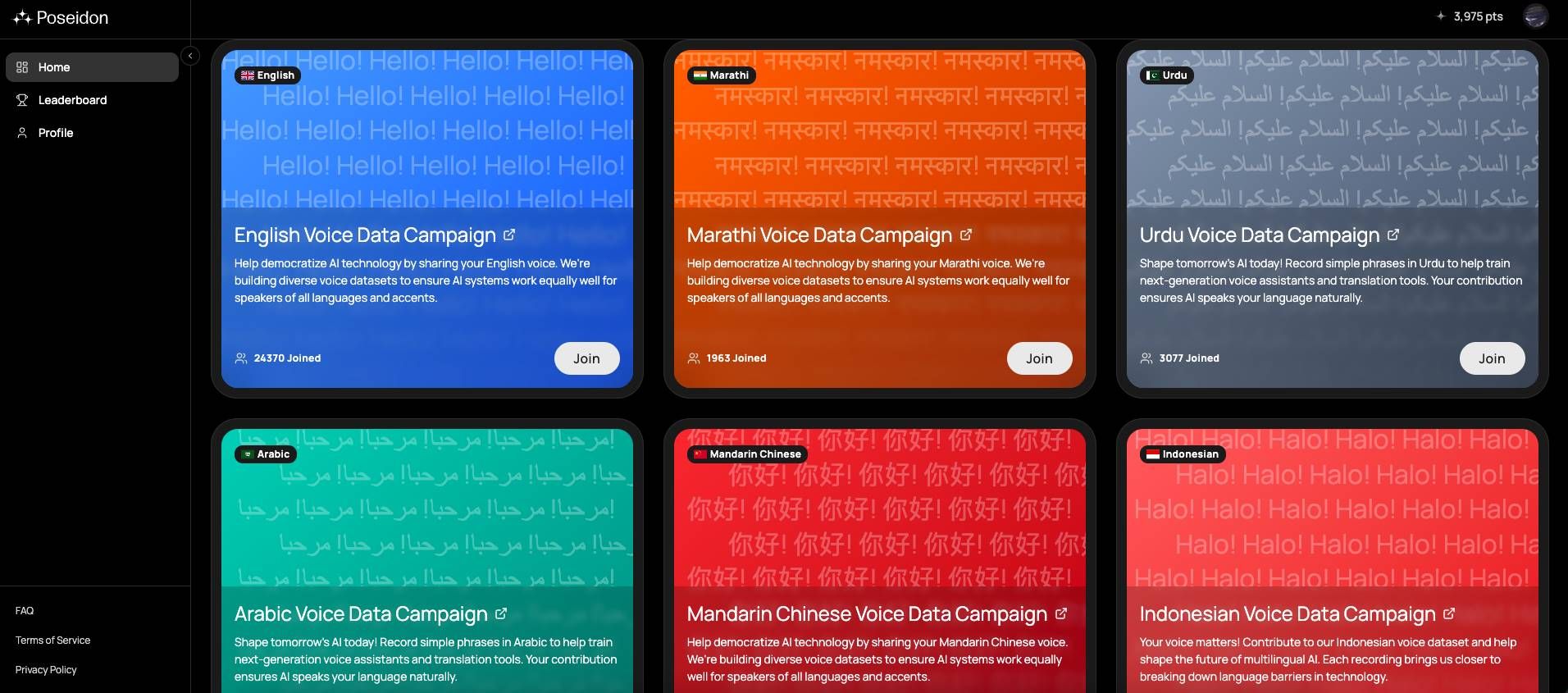
After selecting your desired language, you will enter the material reading interface. Click "Start Recording" to begin reading. After recording for at least 10 seconds, you can click "Submitting" to submit and receive 10 points.
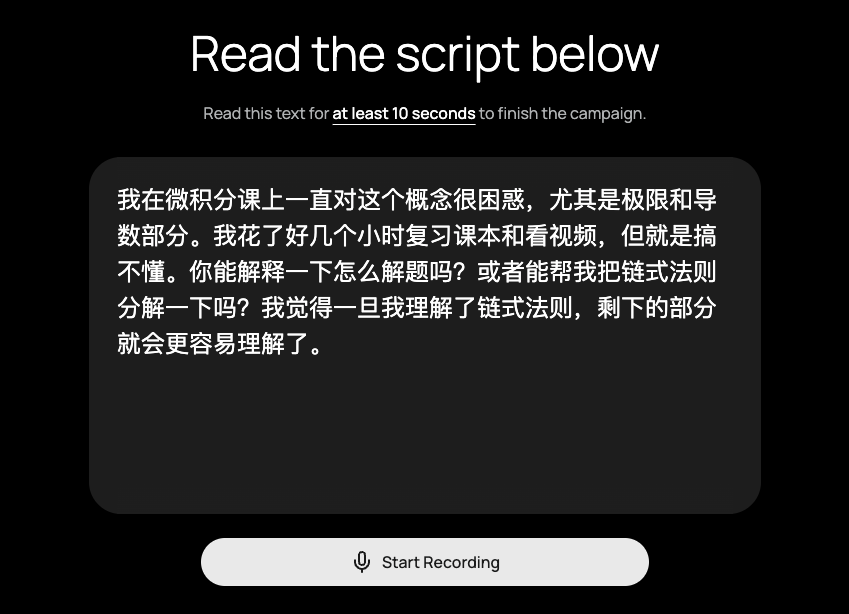
After submitting the recording, it will be reviewed by AI. If the voice review passes, you can receive an additional 50-250 points.
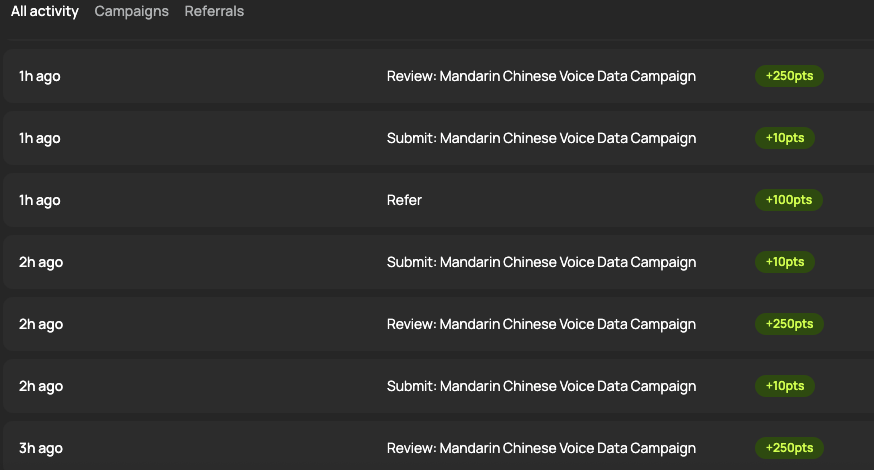
Points Earning Strategy
According to the current points rewards for each language on Poseidon's official website, English, which has the most participants, offers the fewest points: 10 (for submission) + 50 (for passing review). Other languages, including Chinese, offer 10 + 250 points. Therefore, for users in the Chinese community, choosing Chinese voice input is both simple and yields higher point rewards.
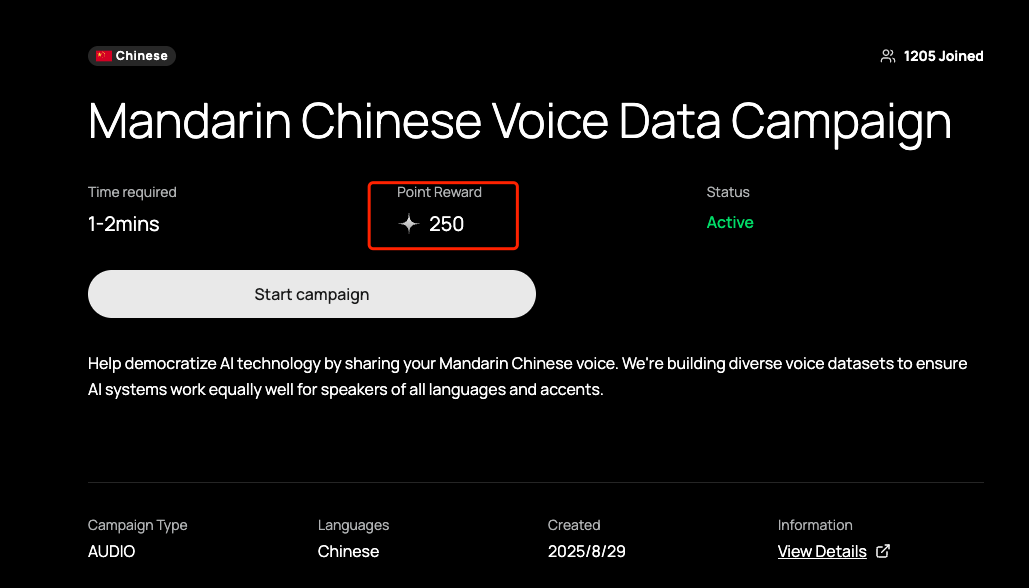
It should be noted that the daily recording submission limit is 5 times. Through active interaction (such as submitting high-quality recordings), users can earn up to 20 recording submissions per day.
Also, based on my testing, if the recording is unclear or a blank recording is submitted, you will not receive the full point reward, and it will also consume your daily submission quota.

Through the "Profile" section on the left side of the official website, users can view their points details and exclusive invitation links.
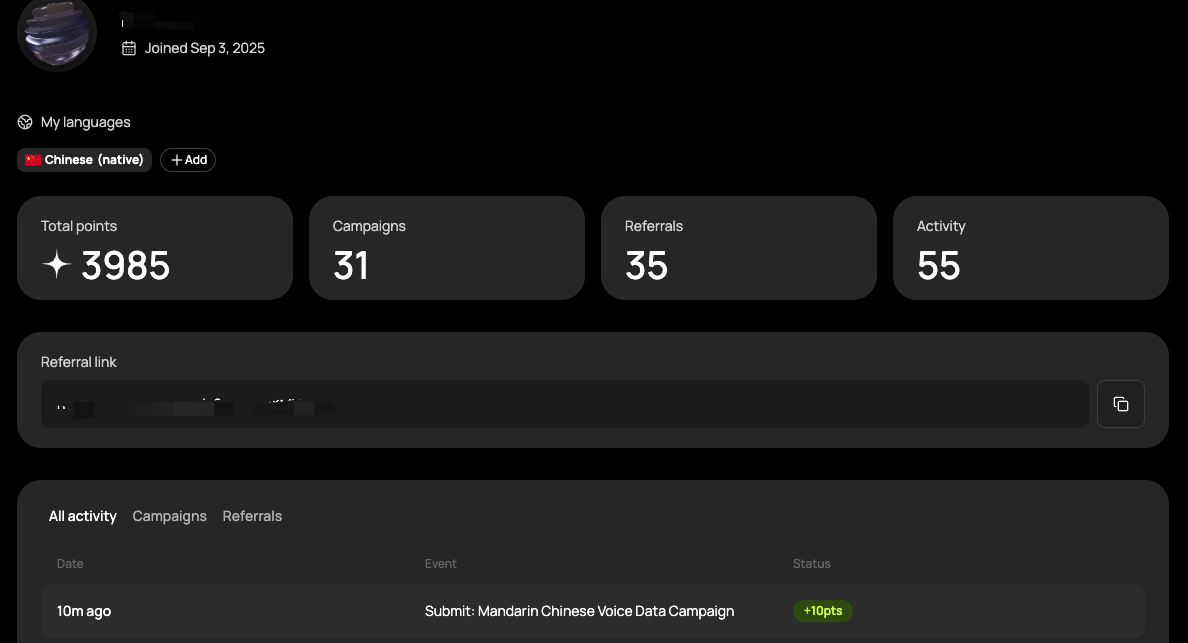
The "Leader board" section on the left navigation bar shows the points ranking. It can be seen that the current number of participants is not large. I earned 3,985 points in two days of interaction, ranking 435th on the leaderboard. As more users join, competition may intensify.
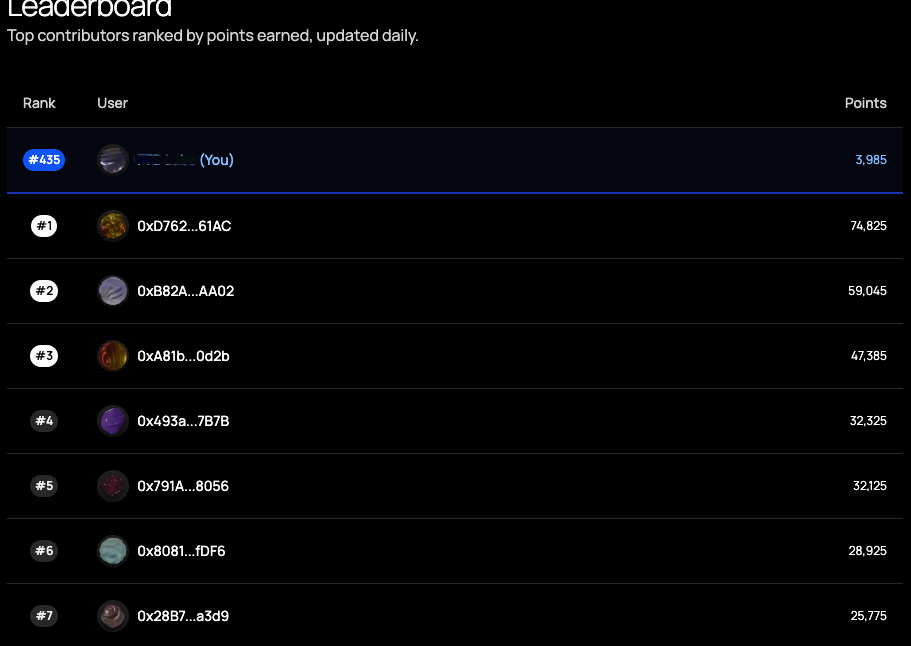
Airdrop Expectations
Although Poseidon has not yet announced a token issuance date, its official website shows that points earned through participation will be converted into rewards or token airdrops once the tokenomics are determined.
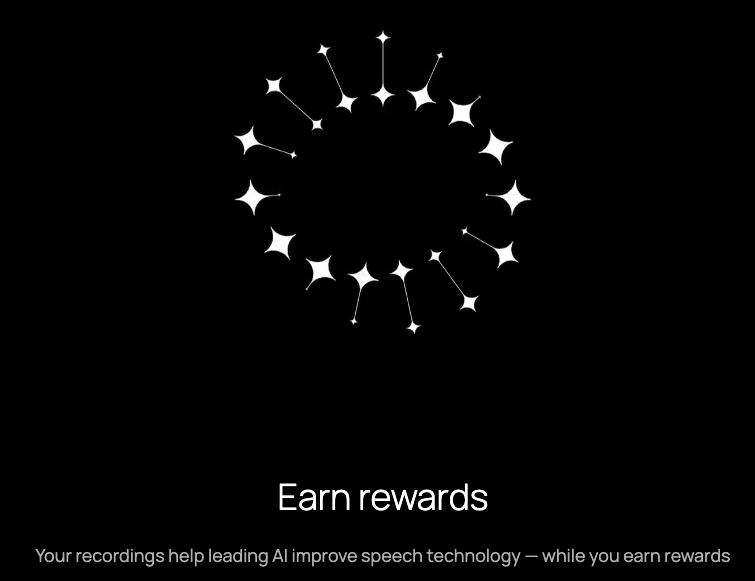
With the rapid development of AI in recent years, related crypto projects have emerged one after another. Meanwhile, the foundational data for AI development is being continuously consumed, and AI urgently needs high-quality voice data from real-world scenarios. This demand has given rise to the Poseidon project.
From a user's perspective, this may be a low-risk, high-potential early opportunity. Currently, you only need to invest your time and voice to gain potential future airdrop rewards.
Disclaimer: This article represents only the author's personal views and does not represent the position or views of this platform. This article is for information sharing only and does not constitute any investment advice for anyone. Any disputes between users and the author are unrelated to this platform. If any articles or images published on the website infringe upon your rights, please provide relevant proof of rights and identification and send an email to support@aicoin.com. Relevant staff of this platform will conduct verification.




